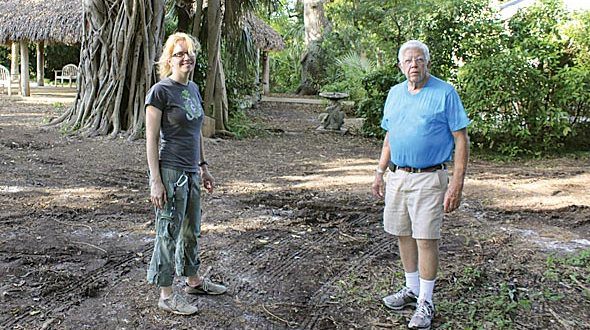
Tropical Audubon Society (TAS) recently launched a new volunteer program with a “Toyota Green Initiative” grant to help complete projects in motion such as the urban nature center, Atlantic flyway exhibit, and demonstration nursery.
Brother Milledge is a life-long area resident and Grounds Chair Director for TAS assisting in getting the volunteers oriented and assigned to critical tasks. “Working with Toyota Green helps hold our feet to the fire,” said Milledge, “and systematically think about what we are doing.”
TAS has committed to 200 new volunteers for the duration of the grant. They are partnering with schools, organizations, and corporations along with individual supporters to bring in the help needed to finish projects. University of Miami’s Butler Center for Service and Leadership, FIU, and Interval International Corporation are some of the groups providing volunteer support.
“For many of the volunteers it is the first time they are exposed to TAS,” said Milledge. “We train them and give tours of our pine rockland native habitat. It is a chance for them to interact with nature in a positive way and we hope it will spark an interest.”
The Steinberg Nature Center—named in honor of 30 year volunteer Alan Steinberg who is still active at 84 years old—-occupies three subtropical acres at 5530 Sunset Drive. “Volunteers will help us maintain the grounds like removing palm fronds and excessive growth to keep our fence line clear,” said Milledge.
Removing invasive exotic plants like the air potato is critical for basic upkeep. Each potato that falls can produce several hundred potatoes the next year according to Milledge. They stay dormant until the first fall rains and can grow a foot a day. A storage building, classroom setting and electricity are other goals for the center.
The Demonstration Nursery is in the process of being built. Milledge was a Scout Master for the Boy Scouts for over 12 years. Some of the recent related projects were Eagle Scout projects like the solar panel connected to the rain water barrel that pumps water into the bird baths.
The completion of the Atlantic Flyway Exhibit is another TAS goal. “It is like I-95 for birds,” said Milledge. “There are an estimated 10 billion flyways throughout the United States. The birds fly at night and can become confused by evening city lights.
“Sometimes you can go to a highly lit building in the morning after a big flight and find half a dozen dead songbirds. What we can do locally is turn off lights at night in buildings that are vacant during off hours to help birds that for example nest in Northern Atlanta in the spring and winter in Chile. Some of them are warblers less than four inches long that take off and flap their way to South America and back.”
To find out more about the Tropical Audubon Society call 305-667-7337 or visit www.tropicalaudubon.org.






